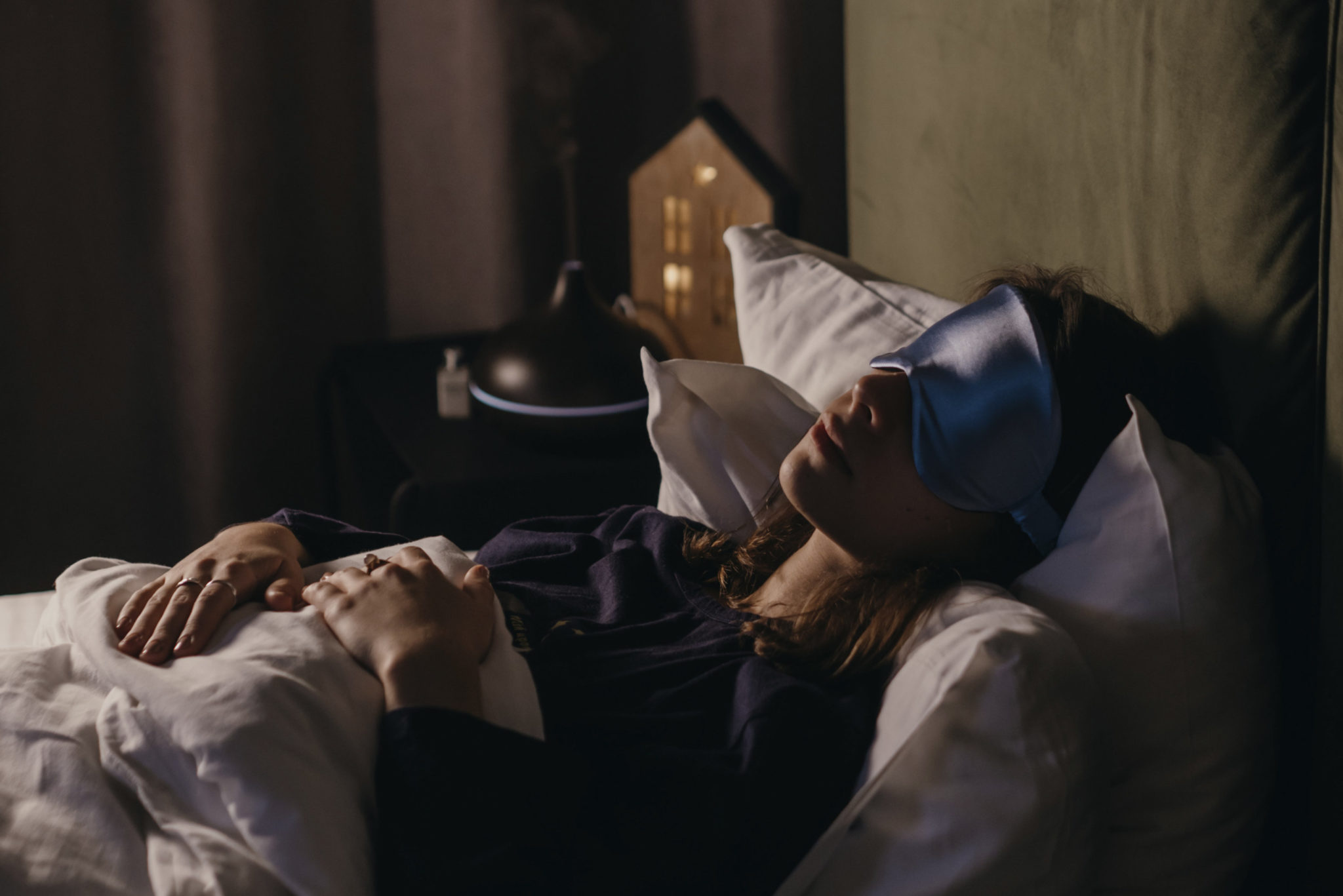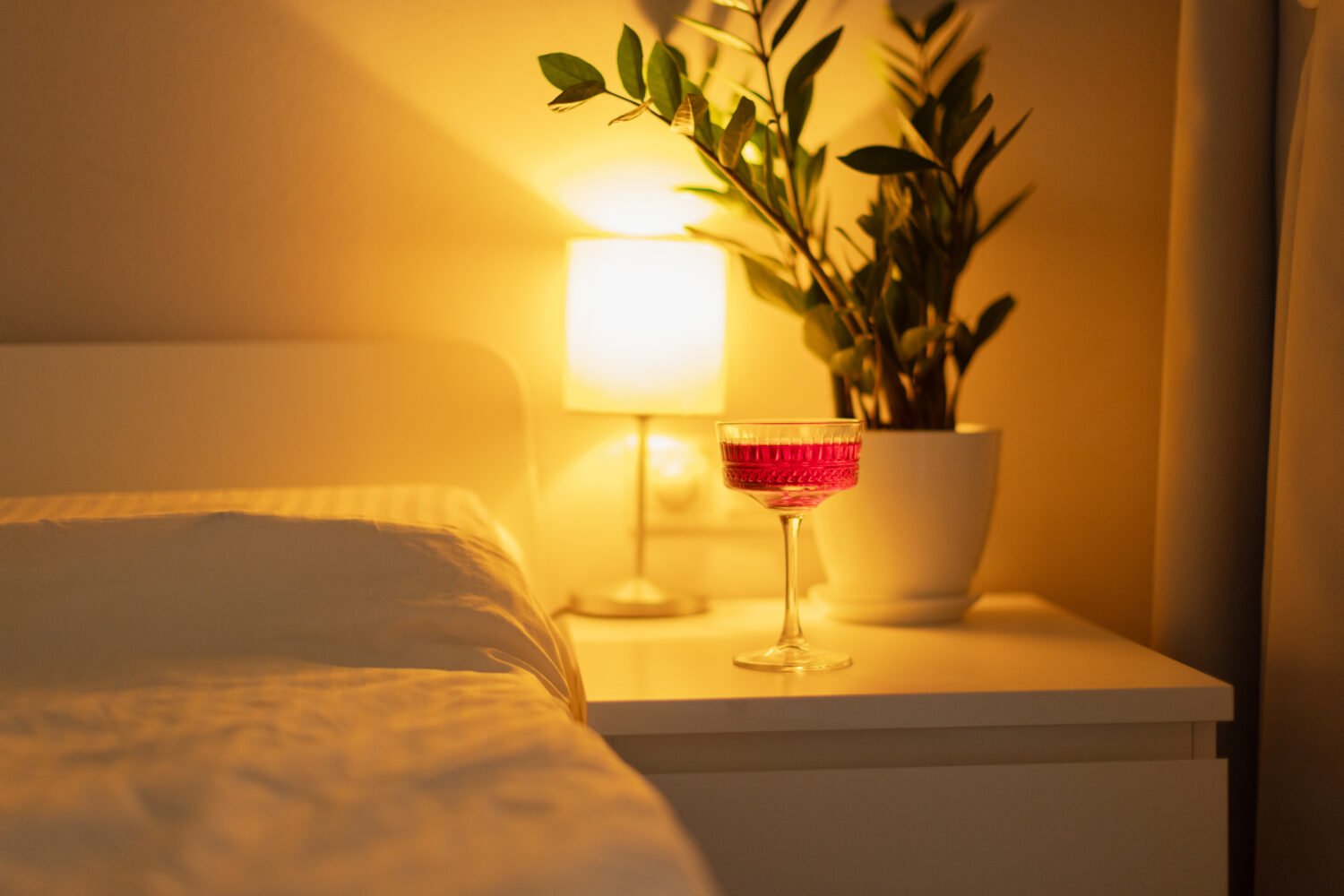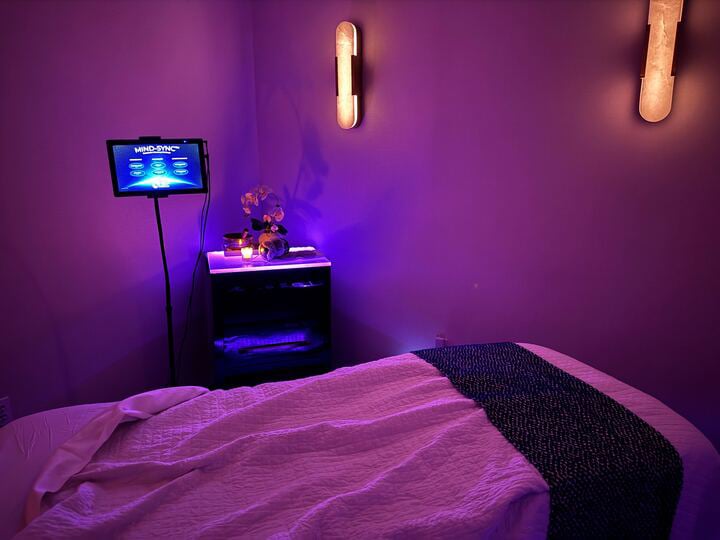A good night’s sleep is the ultimate self-care. But between pandemic burnout and everyday stressors, getting the recommended hours can be a challenge. Helene Emsellem, medical director of the Center for Sleep and Wake Disorders in Chevy Chase, provides some insights into setting yourself up for a night of success.
Consistency Is Key
Working from experience, your brain anticipates when you should be winding down. “Your brain actually uses your wake-up time as the more powerful timekeeper for where the sleep/wake schedule lies,” says Dr. Emsellem. Constantly shifting between a 7 AM start for the workday and a 10 AM weekend rising could hinder your overall sleep schedule.
What to do: If you stay up past your typical bedtime, resist the temptation to compensate by sleeping in for more than two hours, which could reset your circadian clock to a later sleep time the next night. Instead, try getting up at your usual hour and napping later in the day.
Block Blue Light
There’s a reason we shut off lamps at bedtime: Light encourages wakefulness. Blue light is particularly disruptive, because the wavelength suppresses the sleep hormone melatonin more than other types of light do. While it’s best to unplug from light-emitting screens before bedtime, there are ways to mitigate the impact.
What to do: Filters on phones, tablets, and computers can limit exposure to blue light, as can blue-blocking glasses, which work to obscure ambient light. In fact, Emsellem says, if you’re going out and want to transition to bedtime on your return, rocking the glasses around town can help ease the transition.
Adjust Your Environment
Environmental factors besides light can disrupt sleep. Temperature and noise—perhaps your bedmate is a snorer—are common culprits. If you’re a habitual work-from-bedroom employee, the blurred line between office and sleep spot might confuse your mind.
What to do: Depending on your sensitivities, try wearing a sleep mask or earplugs. There are also programmable blinds, which rise and fall on a timer, allowing morning light to act as a more natural wake-up call than an alarm. And don’t forget to keep your laptop in a different location. Says Emsellem: “The old adage is the bedroom should be for sleep and sex.”
Consider a Nap
There’s a popular idea that napping will disrupt sleep, but that’s not always the case. Sometimes it can help you reach your daily balance, especially if you went to bed later than usual the night before. The key is timing: Your sleep schedule may suffer if you doze off too late in the day or for too long.
What to do: Take a page from the Spanish tradition of siestas and time naps between 3 and 5 PM. The length can vary from person to person—Emsellem notes that some people feel refreshed after a ten-minute “power nap,” while others may opt for two hours.
Practice Mindfulness
Racing thoughts. Cerebral to-do lists. So. Much. Mental. Noise. It’s no wonder sleep can sometimes feel like a prize just out of reach.
What to do: Devote 20 minutes each night to a bedtime routine. Stretch to release tension, write in a journal, or meditate. Instead of watching TV (hello, light!), turn on a podcast. Emsellem enjoys listening to TED Talks: “The art is finding a talk to listen to that is sufficiently interesting but not so interesting that it would be a tragedy if you fell asleep.”
This article appears in the January 2023 issue of Washingtonian.



















